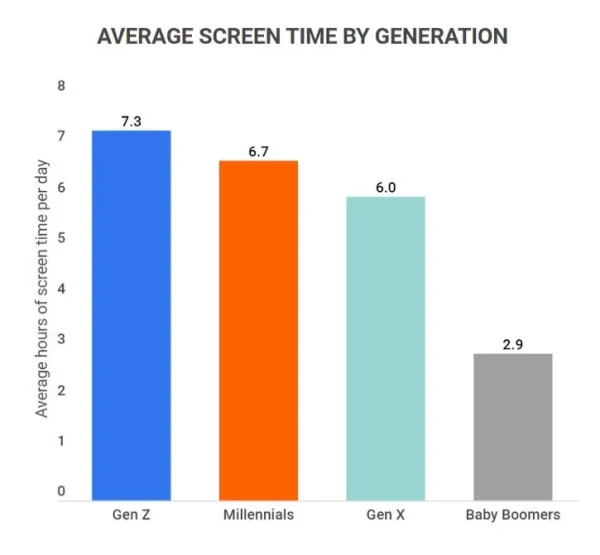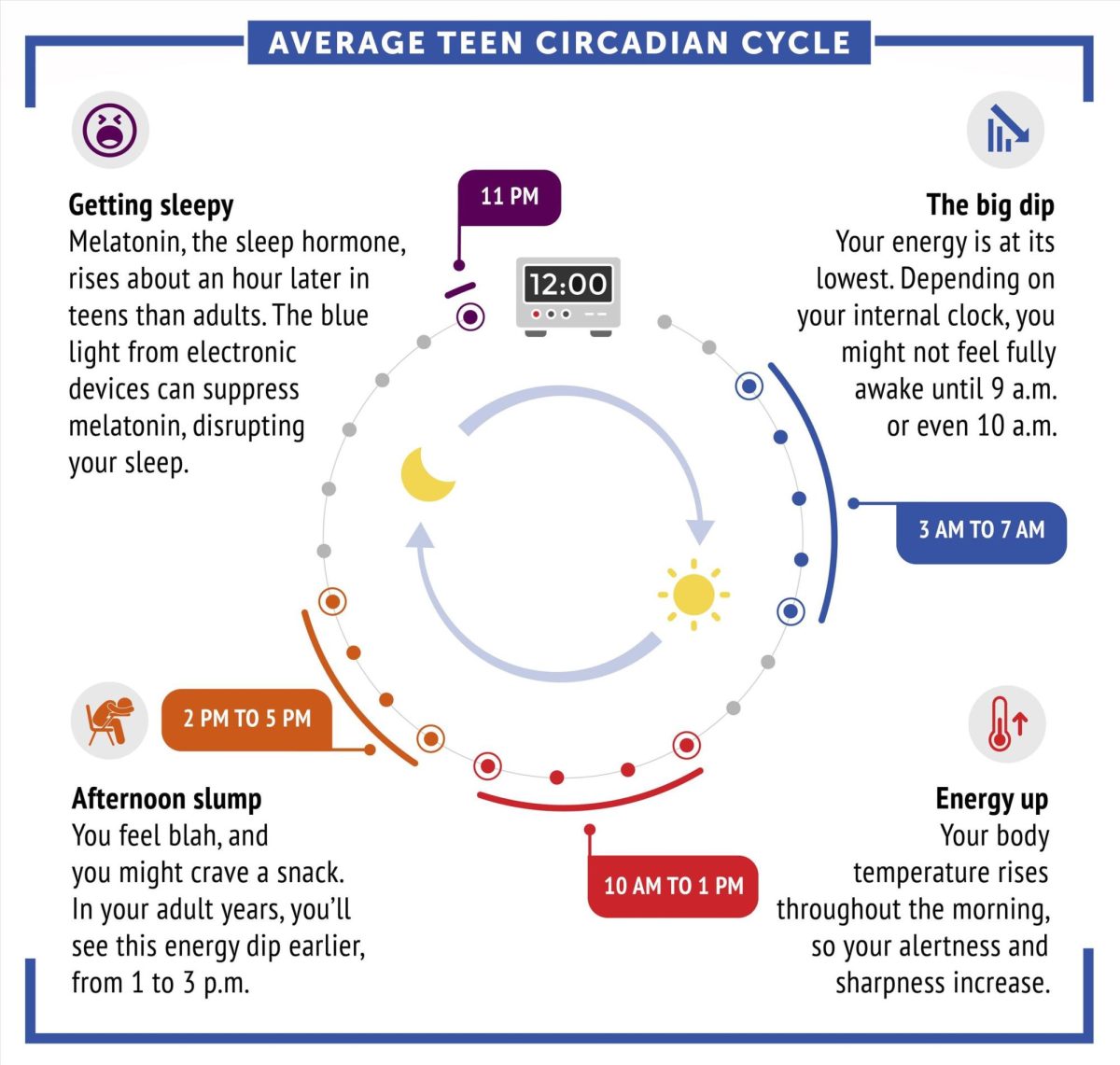“The average attention span for the notoriously ill-focused goldfish is nine seconds, but according to a new study from Microsoft Corp., people now generally lose concentration after eight seconds, highlighting the affects of an increasingly digitalized lifestyle on the brain,” said Jamie Ducharme in an article from Time Magazine.
The statement that humans’ ability to lock in, or rather, their attention spans shorter than that of a goldfish is quite a strong declaration. Whether you have heard these shocking statistics before or not, it is natural to be taken aback by the claim. While more recent studies have shown discrepancies in data, the question still remains, How long is the human attention span?
Misinformation, unfortunately in this case by Time Magazine, causes confusion and even concern for many. Scientists disagree about how to pinpoint a “time” to the human attention span because so many outside factors affect how long it is, such as interest, emotion, presentation, and alertness just to name a few.
“The idea of an ‘average attention span’ is very much meaningless. It’s very much task-dependent. How much attention we apply to a task will vary depending on what the task demand is,” said Dr. K. R. Subramanian, in his research journal titled Myth and Mystery of Shrinking Attention Span.
Culture might make it seem easier to blame a shrinking attention span for a lack of focus in our everyday lives, rather than personally taking responsibility. Even so, not all the fault can be placed on the individual either. The modern world is engulfed in digital distractions, such as addictive social media and constant screen time which alters our brain chemistry.
“It was reported that an average American has a screen time of 7 hours and 4 minutes per day” and teens on average spend “8 hours 39 minutes” daily, from a collection of data published by What’s the Big Data.

The hyper-digitalized age that we live in produces a norm of quick and fast paced change to bring continual dopamine to our brains. Most social media platforms such as TikTok, Instagram, Snapchat, and YouTube capitalize on the way the human brain functions to allow their platforms to take their followers captive and keep them locked in a cycle of reduced brain activity while still benefiting from the dopamine release.
Gen Z is “in a sense, the product [of a digital age]. They are just being sucked along on a conveyor belt. […] It’s almost as though the companies are able to drill down into their brain and extract their attention, and they extract vast, vast quantities of attention from every child,” said Jonathan Haidt, a social psychologist at New York University’s Stern School of Business.
These companies, although not inherently evil or damage seeking, do so though feeding on natural human attention. Social media captures an individual’s attention because it normalizes constant change. This can impact the way someone focuses on any other given task, especially if the brain is not rewarded with dopamine. Constant scrolling and use of social media can lead to being prone to boredom if the digital addiction is not fed.
In addition to this, almost all electronic devices emit high levels of blue light or LED. Although this does not have a direct effect on a person’s attention span, it does influence factors that determine attention. One of these is sleep, or rather a lack of sleep. Sleepiness or fatigue has direct implications on a falling attention span.
Everyone has a natural tendency and desire for sleep, although it varies from person to person. This natural cycle, or circadian rhythm, is “the physical, mental, and behavioral changes an organism experiences over a 24-hour cycle. Light and dark have the biggest influence on circadian rhythms, but food intake, stress, physical activity, social environment, and temperature also affect them” according to the National Institute of General Medical Sciences.
A person’s circadian rhythm is the natural flow and cycle of their body’s alertness throughout the day. Peaks of awakeness and attentiveness are natural as well as times of tiredness and lack of attention, but overwhelming difficulty in focusing could be a sign of an underlying issue. It could simply be a disinterest in a subject, but it could be a result of a lack of proper deep sleep.
To see the impact of electronic devices on circadian rhythms a study was conducted. In 2020, Harvard Medical School “[…] researchers and their colleagues conducted an experiment comparing the effects of 6.5 hours of exposure to blue light to exposure to green light of comparable brightness. The blue light suppressed melatonin for about twice as long as the green light and shifted circadian rhythms by twice as much (3 hours vs. 1.5 hours)” said the researchers on Harvard Health Publishing.
By shifting your circadian rhythm, you are less prone to optimum energy use and less likely to adapt well to environmental changes, such as daily stressors. Both sleeping and eating may become more difficult all because a shift in your circadian rhythm took place. Because the internal clock in your body has been thrown off, it will increasingly become more difficult to sleep.
Sleep deprivation, whether for a day, a week, or longer, has an adverse effect on the mind. Studies have shown that losing just a few hours of sleep each night can have the same effect on someone’s ability to drive (an action that requires heightened concentration) in the same way drinking does. Prolonged sleep deprivation reduces the brain’s ability to focus on tasks and potentially leads to harmful situations.
Reducing screen time and exposure of blue-light can help stabilize your circadian rhythm and increase sleep quality and health. This thereby creates an environment in which your brain is more functional and likely to focus for extended periods of time. With increased brain activity, it will be easier to concentrate in all regards, even in situations that are not personally intriguing or engaging.
Although some influences are out of your control, there are practical steps you can take to extend your attention span by reducing social media use and blue light/LED exposure as well as finding and maintaining a consistent circadian rhythm, because otherwise can you be any more locked in than a goldfish?









